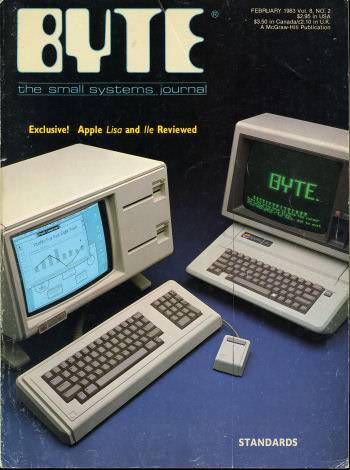Sometimes we have bad days. It’s a part of being human, part of working in a stressful time and place. Among the problems of being a blogger are that it exposes one’s weaknesses, magnifies the limits of one’s personal perspective, and often amplifies our feelings beyond what we might have intended. I have avoided being a blogger in the traditional sense partly because I’m fairly certain that you don’t care – nor should you – about these things as they pertain to me.

Andy Rooney was among the greatest news writers of his generation. But during the latter stages of his life, he complained about how awful life had become, about how things had ceased to be familiar any more, about how disruption had left his world a blur. Rooney’s complaints had become emblematic of what has been perceived as the decline of the role of television as an information medium. So when M.G. Siegler spends a few minutes with us in the same vein, complaining about how the object of his career up until recently has been “bulls—,” one wonders whether this should be emblematic of the end of something else.
The Path to Bulls—
Siegler, by any measure, is one of the more noteworthy bloggers of his generation, still contributing to TechCrunch while working now as an investor in the CrunchFund partnership. Yesterday, Siegler posted a critique of an online article by New York Times reporter Nick Bilton. His subject was a rundown of the unauthorized sharing of iPhone users’ address books by Path, and the subsequent apology from Path CEO Dave Morin, which RWW’s Jon Mitchell praised as “full of refreshing self-consciousness.”
NYT’s Bilton was disturbed by the sudden reversal of apparent public sentiment toward Morin, from indignation to outright support, which he credited to savvy public relations, especially toward the “technorati.” But along the way, his original story had some inaccuracies which NYT corrected, with its usual addendum.
Writing in his personal Paris Lemon blog, Siegler chastised Bilton for not doing the requisite legwork. Had Bilton taken the time to do more research, Siegler pointed out, he would have discovered that Path is not the only app uploading address books to Apple’s servers. “Apps that have been doing it for a long time. That actually would have made his point much stronger,” Siegler wrote. “But that would have been more work. And work is hard. Path was served up on a platter, the homework already done.”
Had Siegler stopped there, we might have considered this a valuable and important lesson. It has become commonplace for Web journalists and bloggers to acquire a story in its mostly, if not entirely, completed state, add one layer of informativeness or newsiness to it, and pass it along the pike. From there, someone may copy it in part or whole, perhaps adding another layer of commentary. Yes, that’s not a particularly ethical way to run a news business.
But Siegler was having a bad day. He had come to the deep, personal revelation that the world of investing into which he had entered, and the world of writing about investors which he has not entirely exited, were – in his words – “not aligned. At all.”
“More Bulls— Than Information”
(Do forgive me for not repeating Siegler’s words here verbatim, including several of the Seven Words You Can’t Say as compiled by the late genius George Carlin. I know writing in street language is oh-so-Hunter S. Thompson these days, but as both my longtime readers will know, as an editor, I tend to lean more towards Fulton J. Sheen.)
“Most of what is written about the tech world – both in blog form and old school media form – is bulls—,” remarks Siegler. “I won’t try to put some arbitrary label on it like 80%, but it’s a lot. There’s more bulls— than there is 100% pure, legitimate information.”
The reason, he reports (in exhaustive detail), is the relentless drive by advertisers for publishers to produce greater page views, which in turn means bloggers devote less time per story, thus reducing the amount of research they’re allowed to do to near- or absolute zero. It gets worse. Most tech bloggers don’t think, Siegler goes on. He himself pleads guilty as charged, adding that it was impossible to know the full extent of what tech bloggers do not know, until he could step outside the shell and observe them from the outside.
Now he realizes just how many different topics a blogger is expected to be an expert in, simultaneously. “You cannot be an authority on 20 different topics. You just can’t,” Siegler writes, in what should have been a concluding paragraph but wasn’t. “But people are trying to convey that they are. And there’s often a perception that they are. And this horribly broken system works from the perspective of the pageview machine.”
So here’s the problem: Some of us appear to have spent a great deal of our careers disrupting the monster that is mainstream media. In Andy Rooney’s day, these were the oracles from which all information flowed in regularly scheduled intervals and in properly proportioned nuggets. Why do people attribute that much authority to a single institution, folks asked?
But now that we have the floor and the spotlight is shining on us – all the myriad individuals who tore down the walls separating the people from open and transparent access to the information they need to live and work – all of a sudden, no one person can be an authority on twenty different things. Now the burden is too hard to bear. We redefined the news business from something about institutions into something about ourselves. We’ve deconstructed the three or four big silos and built a thousand smaller ones. And we’ve come to the realization not only of how under-informed we are, but how uninteresting we are to boot.
We Interrupt This Diatribe…
A news service can be an authority on twenty different things, or a hundred, or five hundred. It’s already happened, just deep in our past. An institution of reporters working together under established, trusted editorial leadership, sharing their knowledge and collaborating with one another, can and has earned a rightful place of authority in millions of people’s lives. Great news broadcasts, newspapers, and newsmagazines about the world and about technology were typically produced by a few dozen people.
It is perhaps the narcissistic nature of this generation that has led people to believe they work better in closets, collaborating to the extent that one can by way of the occasional tweet or IM. Fewer people indeed do generate more content per publication than ever before in history. But as Siegler himself correctly points out, the truth – if and when it ever does become known – is produced through a complex and often random exchange of data from one blogger to the next to the next. When you connect all the various blogs together into one steel-wool-shaped mass, and perceive the product rather than its individual threads as the modern engine of journalism, you realize that far more people are involved today in the production of a complete story than ever before. Each blog publication may act as a subatomic component in the creation of facts, and whatever else accompanies them; the greater molecule of news production is bigger, bulkier, and less efficient than ever before in history. Tens of thousands of people, all ping-ponging hyperlinks in M.G. Siegler’s pageview machine.

“I offer no solutions because my honest opinion is that nothing will change where we’re headed,” the TechCrunch writer closes. Well, okay then. We’ve had our tantrum, and now we’re exhausted and a little embarrassed. Thank you for your input.
My turn now. Journalism is not about being an expert in twenty different things. It’s about being interested in all of them, knowing how to ask questions, and how to elicit information from the answers. You do not have to be an expert in anything at all to be a journalist. In fact, your need to know must be more potent than your need to profess what you know. Your methodologies will improve, your insight will be sharpened, your ability to separate fact from filth will be well-honed.
But you can’t ask questions and expect answers in a vacuum. First, you have to open the f—tarded closet door and step outside. Breathe some clean air. Then start finding the right people to ask questions of. I strongly suspect it’s something M.G. Siegler is yearning to do anyway.
Scott M. Fulton, III is the author of this document, and is fully responsible for his content.
Byte Magazine cover, February 1983, from VintageComputers.net





















